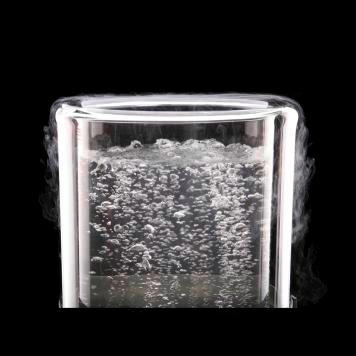| N | Z = 7 |
◊
◊
◊
◊
◊ |
Nitrogen |
| From the Greek "nitrum, -genes", meaning "native-soda begetter" |
| (AM) Atomic Mass |
14.00674 amu |
♦ |
 Oxidation States Oxidation States |
+1, +2, +3, +4, +5, -3 |
 (BP) Boiling Point (BP) Boiling Point |
-195.8 °C |
♦ |
 (MP) Melting Point (MP) Melting Point |
-209.9 °C |
 (ρ) Density (ρ) Density |
0.001251 g/cm3 |
♦ |
 Crystal Structure Crystal Structure |
Hexagonal |
 ( χ ) Electronegativity ( χ ) Electronegativity |
3 |
♦ |
 (AR) Atomic Radius (AR) Atomic Radius |
0.75 Å |
 Physical State Physical State |
Gas |
♦ |
(C) Heat Capacity |
1.04 J/g °C |
| Electronic-Config |
1s2 2s2 2p3 |
♦ |
 (I1) First Ionization E (I1) First Ionization E |
1402.31 kJ/mol |
 (ΔHvap) Heat of Vaporization (ΔHvap) Heat of Vaporization |
5.57 kJ/mol |
♦ |
 (ΔHfus) Heat of Fusion (ΔHfus) Heat of Fusion |
0.72 kJ/mol |
 Year of Discovery Year of Discovery |
1772 |
♦ |
 Location of Discovery Location of Discovery |
United Kingdom |
| (E°) Standard Potential |
N2O + 2 H+⇔ N2 + H2O (1.770 V) |
| Stable isotopes |
14N, 15N |
| Discovered/Synthesized by |
Daniel Rutherford |
| Natural Source |
Isolated from the liquifaction of air |
| Common Uses |
Ammonia, fertilizer, explosives (TNT), refrigerants |
| Other Info |
Makes up 80% of our atmosphere
Exists in nature as the diatomic molecule N2 |
Previous Element
 |
 |
Next Element
 |
Back to Table
 |
Common Properties
 |
Home Page
 |
Definitions
 |


